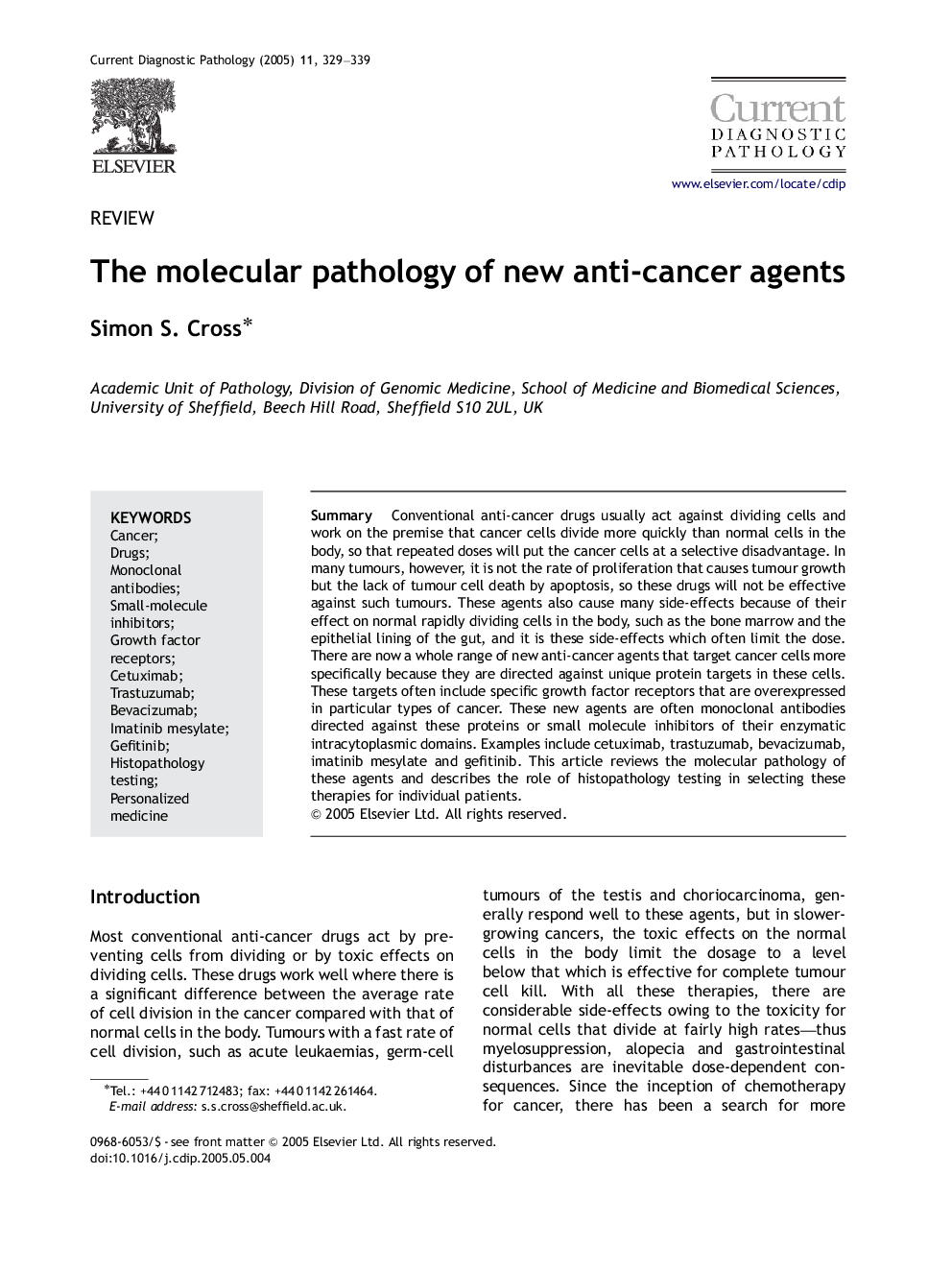| کد مقاله | کد نشریه | سال انتشار | مقاله انگلیسی | نسخه تمام متن |
|---|---|---|---|---|
| 9364956 | 1271109 | 2005 | 11 صفحه PDF | دانلود رایگان |
عنوان انگلیسی مقاله ISI
The molecular pathology of new anti-cancer agents
دانلود مقاله + سفارش ترجمه
دانلود مقاله ISI انگلیسی
رایگان برای ایرانیان
کلمات کلیدی
imatinib mesylatebevacizumab - بواسیزومابTrastuzumab - تراستوزومب، هرسپتینGefitinib - جفیتینیب، ایرساDrugs - داروCetuximab - ستوکسیمب، اِربیتاکس، ستوکسیمبCancer - سرطانSmall-molecule inhibitors - مهار کننده های کوچک مولکولیMonoclonal antibodies - پادتنهای تَکتیرهPersonalized medicine - پزشکی شخصیgrowth factor receptors - گیرنده های فاکتور رشد
موضوعات مرتبط
علوم پزشکی و سلامت
پزشکی و دندانپزشکی
آسیبشناسی و فناوری پزشکی
پیش نمایش صفحه اول مقاله

چکیده انگلیسی
Conventional anti-cancer drugs usually act against dividing cells and work on the premise that cancer cells divide more quickly than normal cells in the body, so that repeated doses will put the cancer cells at a selective disadvantage. In many tumours, however, it is not the rate of proliferation that causes tumour growth but the lack of tumour cell death by apoptosis, so these drugs will not be effective against such tumours. These agents also cause many side-effects because of their effect on normal rapidly dividing cells in the body, such as the bone marrow and the epithelial lining of the gut, and it is these side-effects which often limit the dose. There are now a whole range of new anti-cancer agents that target cancer cells more specifically because they are directed against unique protein targets in these cells. These targets often include specific growth factor receptors that are overexpressed in particular types of cancer. These new agents are often monoclonal antibodies directed against these proteins or small molecule inhibitors of their enzymatic intracytoplasmic domains. Examples include cetuximab, trastuzumab, bevacizumab, imatinib mesylate and gefitinib. This article reviews the molecular pathology of these agents and describes the role of histopathology testing in selecting these therapies for individual patients.
ناشر
Database: Elsevier - ScienceDirect (ساینس دایرکت)
Journal: Current Diagnostic Pathology - Volume 11, Issue 5, October 2005, Pages 329-339
Journal: Current Diagnostic Pathology - Volume 11, Issue 5, October 2005, Pages 329-339
نویسندگان
Simon S. Cross,